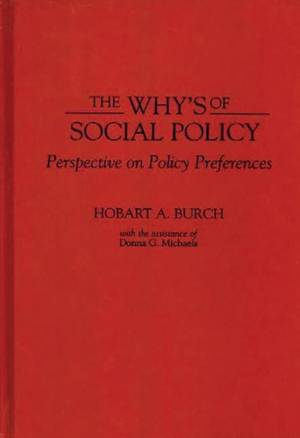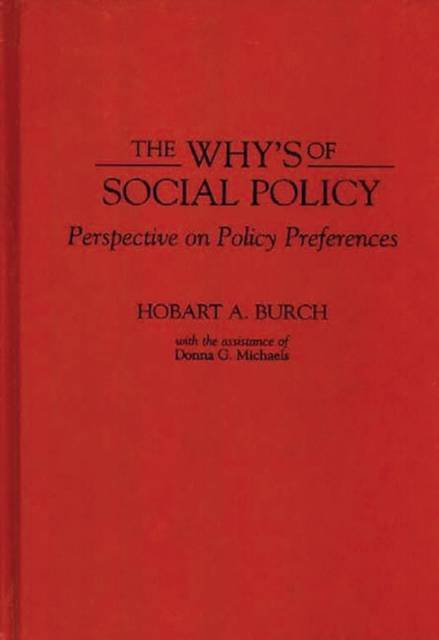
- Retrait gratuit dans votre magasin Club
- 7.000.000 titres dans notre catalogue
- Payer en toute sécurité
- Toujours un magasin près de chez vous
- Retrait gratuit dans votre magasin Club
- 7.000.0000 titres dans notre catalogue
- Payer en toute sécurité
- Toujours un magasin près de chez vous
Description
The field of social policy has produced numerous academic studies, most of which either introduce social policy and welfare programs, or focus on advocacy strategy and tactics. In this work, Hobart Burch takes the much less common approach of examining and explaining the thought, reasons, and philosophy behind social policy and the policy choices that must be made. In a broad-based and eminently readable way, Burch applies general philosophical principles to real-world issues and choices, relating our traditional notions of equality, fairness, and liberty to such practical problems as poverty, social welfare, and the welfare state.
Blending perspectives from several different professions, Burch provides frameworks for analyzing fundamental social policy issues and choices. He draws on concepts and choices from both recent and historical policies and programs, identifying the timeless issues that continually present themselves in slightly different forms. To enable the reader to analyze each new situation and develop creative responses, each chapter identifies a different set of issues and the alternative values and principles that can apply. Burch also offers a step-by-step model for analyzing these issues and reaching a decision. Among the topics covered are socioeconomic systems, the welfare state, civil rights and entitlements, and policies of taxation and redistribution policies. This book will be an important new resource for scholars and policy makers in social work, social planning and philosophy, and policy issues, as well as a useful addition to both academic and public libraries.Spécifications
Parties prenantes
- Auteur(s) :
- Editeur:
Contenu
- Nombre de pages :
- 256
- Langue:
- Anglais
- Collection :
Caractéristiques
- EAN:
- 9780275940065
- Date de parution :
- 30-10-91
- Format:
- Livre relié
- Format numérique:
- Genaaid
- Dimensions :
- 160 mm x 231 mm
- Poids :
- 489 g

Les avis
Nous publions uniquement les avis qui respectent les conditions requises. Consultez nos conditions pour les avis.






